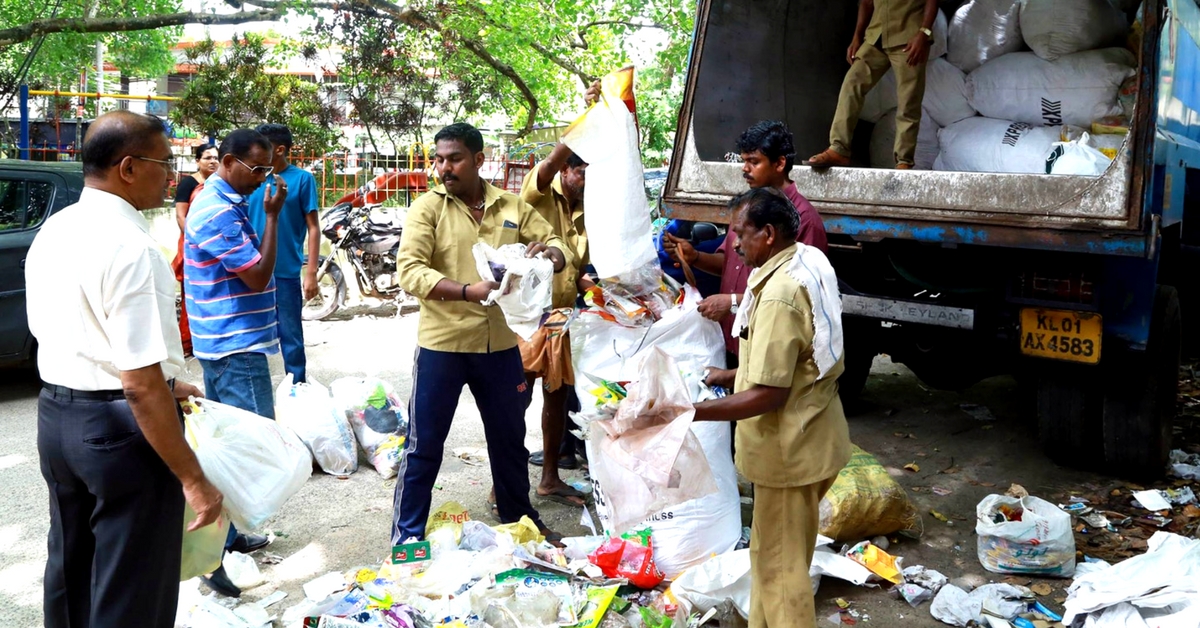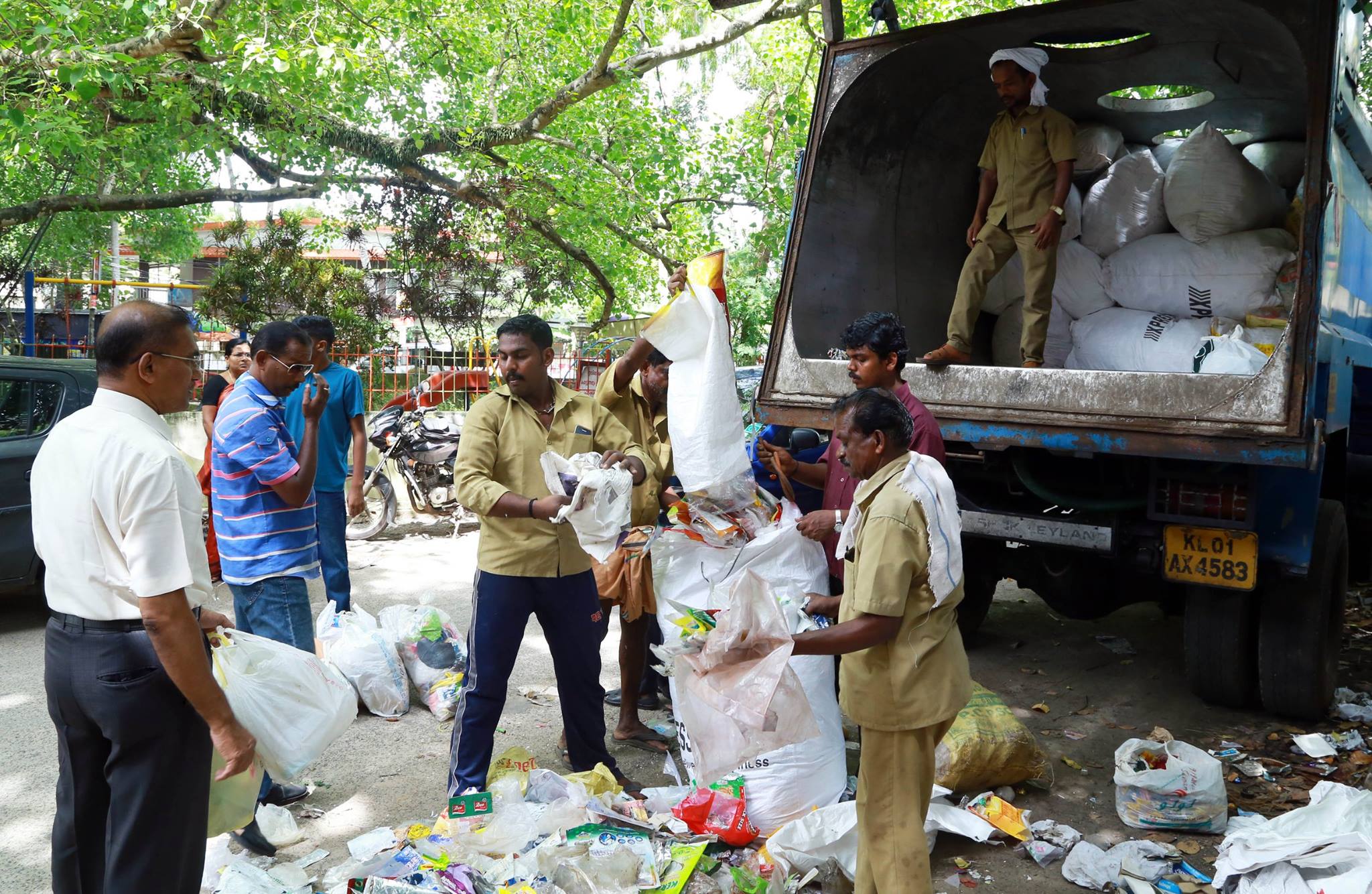With the Help of Residents, This Is How Trivandrum Is Composting Its Own Waste
The Corporation of Thiruvananthapuram is looking into composting organic waste right at the source, apart from segregating it.

Kerala is on a mission to close down its landfills with the help of a new solid waste management system, and this mission is being materialised in Thiruvananthapuram.
The Corporation of Thiruvananthapuram is looking into composting organic waste right at the source, apart from segregating it, reports The Hindu. Composting facilities are being set up at the residents’ houses, for which they’re receiving assistance over the technicalities. To set them up, the corporation only charges them a nominal fee.
“Thiruvananthapuram has 100 wards, each of which has around 2,500 to 3,000 households. For those composting at the source, local service providers offer a three-layered bin and 30-litre coco peat-based inoculum. Green technicians, as they are called, will provide monthly technical assistance as well as collect the compost if the resident does not require it. Service providers will collect only non-biodegradable waste from households. The monthly service charge is ₹200,” Shibu K.N., director of Thanal, which provides technical consultancy to governments, institutions and communities on solid waste management and zero waste systems, told the publication.
The disposing of non-biodegradable waste has been simplified.

Recyclable items can be dropped off at designated spots, and low-value waste can be dropped off at resource recovery facilities between 5 am and 9 pm.
The residents are also being discouraged from using non-biodegradable products through a program called Green Protocol started by the government in the state. This was implemented during the Onam celebrations.
“Around 25 lakh people had gathered at the venue, where the plastic had been totally banned. Student volunteers confiscated all plastic products at the entry point, placed tags and collected an amount of ₹10, which was reimbursed at the exit point. Thermocol plates were replaced with areca nut leaf plates at ₹1 per plate,” Sugathan Shivadasan, executive director of the NGO Green Village, told The Hindu.
Like this story? Or have something to share?
Write to us: [email protected]
Connect with us on Facebook and Twitter.
NEW: Click here to get positive news on WhatsApp!
If you found our stories insightful, informative, or even just enjoyable, we invite you to consider making a voluntary payment to support the work we do at The Better India. Your contribution helps us continue producing quality content that educates, inspires, and drives positive change.
Choose one of the payment options below for your contribution-
By paying for the stories you value, you directly contribute to sustaining our efforts focused on making a difference in the world. Together, let’s ensure that impactful stories continue to be told and shared, enriching lives and communities alike.
Thank you for your support. Here are some frequently asked questions you might find helpful to know why you are contributing?


This story made me
-
97
-
121
-
89
-
167











